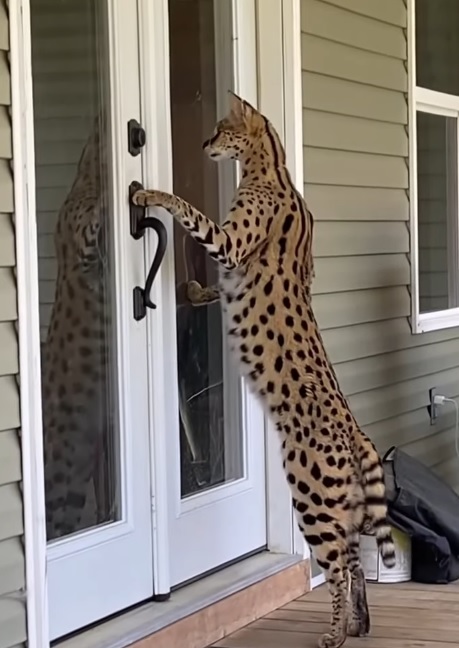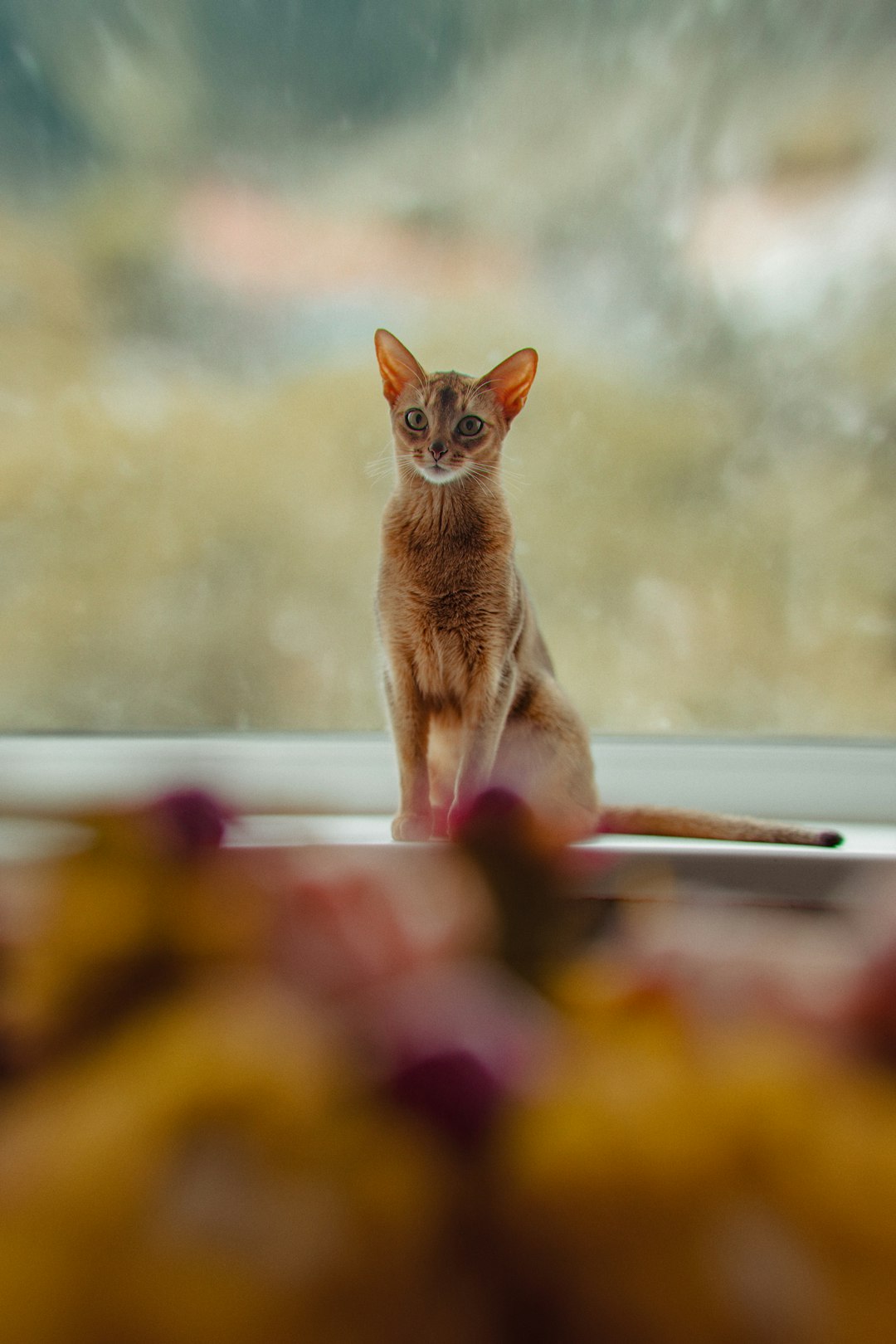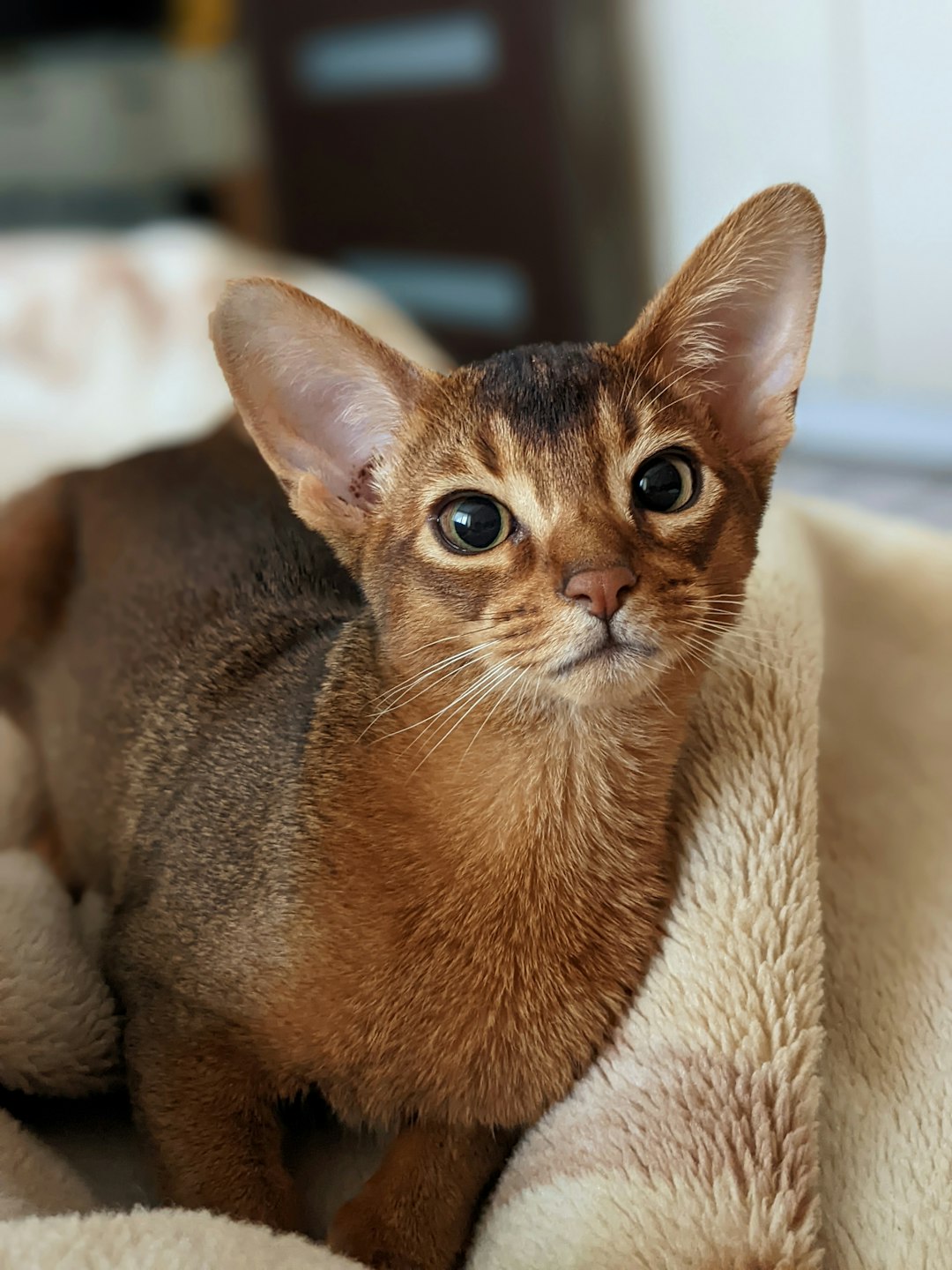Meet the savannah cat, a striking blend of wild charm and domestic coziness that leaves cat lovers spellbound. With their exotic lineage tracing back to African servals, these feline wonders boast stunning spots and an agile physique that turns heads. But don’t let their appearance fool you; it’s their quirky personalities and unique vocalizations that truly set them apart as delightful companions. So, if you’re pondering what makes the savannah cat a captivating and one-of-a-kind pet, buckle up for a ride through their fascinating features and lovable traits!
Origin and History of the Savannah Cat
The savannah cat boasts a fascinating tale, accruing charm over the years like fine wine! Its roots trace back to a cross between a domestic cat and the serval, a stunning wild African cat. This unique lineage gives the savannah cat its striking appearance and playful personality.
Let’s break down the timeline:
- 1980s: The experiments began when breeders sought to create a hybrid that would capture the beauty of the serval while keeping that affectionate domestic vibe.
- 1996: The first official savannah cat registered with the International Cat Association (TICA), making waves and earning its rightful spot on the exotic pet stage.
- 2001: The savannah cat gained championship status from TICA, further solidifying its popularity.
So, if you’re looking for a purring piece of history, complete with an adventurous spirit, the savannah cat is hard to resist! With its exotic look and lively antics, this breed truly bridges the gap between wild and domestic.
Physical Characteristics of the Savannah Cat
The savannah cat is not just a pretty face; it’s a cat with a striking, exotic appearance that turns heads faster than a celebrity on the red carpet! Here’s what makes this feline remarkable in terms of its physical traits:
- Size: Savannah cats come in various sizes, often weighing between 8-25 pounds depending on their generation. Yes, you read that right—this is one cat that packs a punch!
- Coat: Their stunning coat is often covered in bold spotting, resembling that of a wild serval. It’s soft, luxurious, and oh-so-touchable—perfect for a cozy cuddle.
- Ears: Check out those large, alert ears! Savannah cats have ears that stand tall, giving them a keen sense of hearing. They truly look like they’ve come straight from the savanna!
- Eyes: With striking almond-shaped eyes that can be green or gold, the savannah cat’s charming gaze is simply mesmerizing.
| Feature | Description |
|---|---|
| Size | 8-25 pounds |
| Coat | Spotted and luxurious |
| Ears | Large and alert |
| Eye Color | Green or gold |
In summary, the savannah cat stands out not just in personality but also in looks. If you want a companion that’s as unique on the outside as it is on the inside, look no further than the stunning savannah cat!
Temperament and Behavior Traits
When you picture a savannah cat, imagine a charming blend of wild and playful. Thanks to their origins, the personality of the savannah cat sparkles with a unique zest for life that makes them both exotic and endearing. Here’s a peek into their intriguing behaviors:
- Playful Nature: These cats possess kitten-like energy well into adulthood. Expect them to turn your home into an amusement park, climbing, jumping, and exploring.
- Social Butterflies: Savannahs thrive on interaction. They’re known for forming strong bonds with their human companions and often follow them around like tiny shadows.
- Intelligence and Curiosity: As highly intelligent creatures, these felines love challenges. Puzzle toys or playing fetch? Yes, please! Just keep those brain cells busy.
- Affectionate Companions: This exotic kitty doesn’t shy away from cuddles. Many savannah cat owners report even their wildest pets purring like a motorboat on their laps.
Overall, owning a savannah cat guarantees a lifetime of fun, affection, and almost canine-like loyalty! Their unique temperament is sure to keep you on your toes and fill your home with joy.
Grooming and Care Needs
When it comes to grooming and care, the savannah cat is a low-maintenance gem in the world of feline companions. With their exotic looks, you might think they’d require royal treatment, but fear not! Here’s what you need to know:
- Fur Type: The savannah cat has a short to medium coat that’s surprisingly easy to manage. A quick brush once a week helps to eliminate loose fur and reduce shedding.
- Bathing: Unlike some high-maintenance breeds, giving your savannah cat a bath is rarely necessary. They are natural self-groomers, perfect for those who dislike bathing their pets!
- Nail Care: Trim those claws every couple of weeks. Ensuring their claws are in check prevents those surprise “ouchies” when they’re in a playful mood.
- Dental Health: Don’t skip out on dental care! Regular brushing helps maintain healthy teeth and gums. Get your savannah cat accustomed to it early for stress-free sessions.
Overall, your savannah cat will thrive with a bit of love and an occasional grooming session. Now that’s a win-win for you and your feline friend!
The Savannah Cat’s Unique Vocalizations
Ever wonder what goes on in the mind of a savannah cat? Well, prepare for a symphony of sounds that’ll leave you both amused and intrigued! These felines aren’t just about looks; their vocalizations add to their exotic charm. Here’s what makes their “talking” quite special:
- Chirps and Chuffs: Unlike your average meow, the savannah cat often communicates with delightful chirps and chuffs, reminiscent of their wild ancestors. This makes them sound more like a mini wildcat than a typical house kitty.
- Trills: When your savannah cat feels particularly affectionate, expect sweet trilling sounds. It’s their way of saying, “Hey, I love you!”
- Traditional Meows: Yes, they’ve got those too! But don’t expect the usual high-pitched yowls; their sound can be deeper and more pronounced.
| Vocalization Type | Description | Emotion Associated |
|---|---|---|
| Chirps | Short, sharp sounds | Excitement |
| Chuffs | Gentle, breathy purring | Affection |
| Trills | Sweet, melodic noises | Love and Contentment |
| Meows | Deeper, more resonant meows | Attention-Seeking |
In short, if you’re looking for a companion that communicates with flair, the savannah cat is like the opera singer of the feline world!
Socialization and Family Dynamics
When it comes to savannah cats, their socialization skills are nothing short of remarkable. These feline wonders thrive in dynamic environments, and their personality often resembles that of a playful dog. Here’s why they make fantastic family members:
- Affectionate Nature: Unlike some aloof cats, the savannah cat loves cuddles and companionship. They enjoy snuggling up with their humans, making them great lap companions.
- Playfulness: They carry a youthful exuberance. Expect to find them engaging in playful antics, whether it’s chasing a feather toy or joining kids in a game of hide-and-seek.
- Adaptability: Savannah cats readily adapt to various household dynamics, whether you have kids, other pets, or are a single professional. They’re social butterflies!
- Communication Skills: They possess a diverse vocal repertoire, from chirps to meows, which helps them express their needs and feelings clearly.
Overall, inviting a savannah cat into your home means welcoming an energetic, loving companion that can enrich your family life and bring endless joy.
Training and Intelligence Levels
When it comes to the savannah cat, their intelligence can leave you both impressed and, let’s be honest, a little flabbergasted. These whiskered marvels often showcase their cleverness through:
- Problem-solving skills: Savannah cats love to put their minds to the test! From figuring out how to open doors to discovering the secret stash of treats you thought was hidden away, they always seem one step ahead.
- Playfulness: Engaging a savannah cat in interactive play not only entertains them but also serves as a training opportunity. Get ready for a fetch game—yes, they can learn to bring things back!
To effectively train your savannah cat:
- Use positive reinforcement: Reward them with treats or praise for desired behaviors. Who could resist that?
- Keep sessions short and fun: They have shorter attention spans, so mix it up!
In conclusion, the savannah cat’s intelligence pairs beautifully with its playful nature, making them a charming and interactive companion that keeps you on your toes!
Health Considerations for Savannah Cats
When it comes to owning a savannah cat, health is a top consideration. Despite their exotic looks, these felines can be surprising when it comes to care needs. Here’s what you should keep in mind:
- Regular Vet Visits: Schedule annual check-ups to keep your savannah cat in tip-top shape. Early detection of issues means a happier kitty.
- Genetic Conditions: Be aware that some savannah cats may inherit conditions like hypertrophic cardiomyopathy (HCM) or hip dysplasia. Monitor their activity and health—remember, a happy cat is an active cat!
- Diet Matters: Feed premium, high-protein diets to match their energetic lifestyle. A proper diet helps prevent obesity and associated health problems.
- Hydration is Key: Ensure they have access to fresh water, as savannah cats are prone to urinary tract disorders.
To sum it up, investing time in your savannah cat’s health translates into a long, playful, and loving relationship. A healthy cat is a happy cat, and as a bonus, you might find that they keep you on your toes!
Why Choose a Savannah Cat as a Companion?
Thinking of adding a little wild charm to your home? Look no further than the savannah cat! Here’s why this exotic breed deserves a prime spot on your shortlist:
- Striking Appearance: With their tall, slender bodies and beautifully patterned coats, savannah cats are like living art pieces. Who wouldn’t want a feline that doubles as a conversation starter?
- Playful Personality: These cats are known for their playful antics. They will keep you entertained for hours while demonstrating their agility and intelligence.
- Great for Active Families: If you have a bustling household, the savannah cat will fit right in! They thrive on interaction and love the company of their humans (and sometimes even dogs!).
- Intelligent Companions: Unlike your average house cat, the savannah cat exhibits remarkable problem-solving skills and can even learn tricks. Imagine impressing your friends with a cat that fetches!
- Unique Bonding Experience: With their dog-like tendencies, savannahs often follow you around and engage in cuddling sessions, creating a unique bond that’s hard to match.
In short, if you crave a companion that’s as unique as it is lovable, a savannah cat just might be your purr-fect match!
Why Choose a Savannah Cat as a Companion?
Looking for a pet that stands out from the crowd? Worry not! The savannah cat is here to dazzle your life with its exotic charm and playful spirit. Here’s why you should consider adding one to your family:
- Striking Appearance: With their tall, lean bodies and stunning spots, savannah cats are like walking art pieces! They’re bound to be the center of attention anywhere they prance.
- Dynamic Personality: If you crave energy, your savannah cat will provide it in spades! These felines are known for their playful antics, showcasing a mix of dog-like loyalty and cat-like independence.
- Highly Intelligent: Savannah cats outsmart most of their feline friends. They learn tricks quickly and enjoy interactive toys that stimulate their sharp minds.
- Social Butterflies: Great with kids and other pets, these cats thrive in social settings. A savannah cat won’t just sit on your lap—they’ll be the life of the party!
In summary, if you want a unique, entertaining, and interactive companion, the savannah cat might just be your purr-fect match!
Frequently Asked Questions
What exactly is a Savannah cat, and what sets it apart from regular domestic cats?
Ah, the Savannah cat! Picture a majestic leap through the African savannah at dawn—this feline is a hybrid of a domestic cat and a serval, a wild African cat. What sets them apart in the purring populace? Their stunning looks! With long legs, huge ears, and a wild coat pattern that begs for attention, Savannahs are not your typical feline fluffballs. These energetic companions retain some of that wild serval spirit, making them an exotic yet affectionate addition to your household.
Are Savannah cats high-maintenance pets, or can they seamlessly fit into a busy lifestyle?
Savannah cats are akin to the diva of the cat world—they have high energy levels and a zest for life that rivals even the busiest Instagram influencers! They thrive on interaction, playtime, and stimulation. If your lifestyle resembles a slow Sunday morning, brace yourself for a spirited feline companion who may take you on wild chases around the house! However, if you commit to providing mental and physical engagement, these dynamic furballs will joyfully fit into your life like a puzzle piece, albeit an energetic one.
How can I ensure a happy and healthy environment for my Savannah cat?
Creating a joyous habitat for your Savannah cat is like hosting the ultimate feline fiesta! They require not only luxurious lounging spots but also ample opportunities to stretch their legs and indulge their curiosity. Think vertical spaces like cat trees and shelves, interactive toys, and playtime sessions that keep them engaged. Remember, these cats are quite social and thrive on companionship, so consider adopting two if you seek double the cat charisma while preserving your furniture from their playful onslaught.
Are there any dietary needs unique to Savannah cats compared to other domestic breeds?
Savannah cats are like the connoisseurs of the cat cuisine world! Their hybrid status means they may benefit from a high-protein diet that mirrors their wild ancestors. Quality cat food packed with meat is essential—think chicken, turkey, or even the occasional gourmet cat treat! Always keep an eye on their health and maintain a balanced diet, as these spirited companions can sometimes be prone to weight gain. A happy, healthy Savannah cat is a well-fed one, after all!



